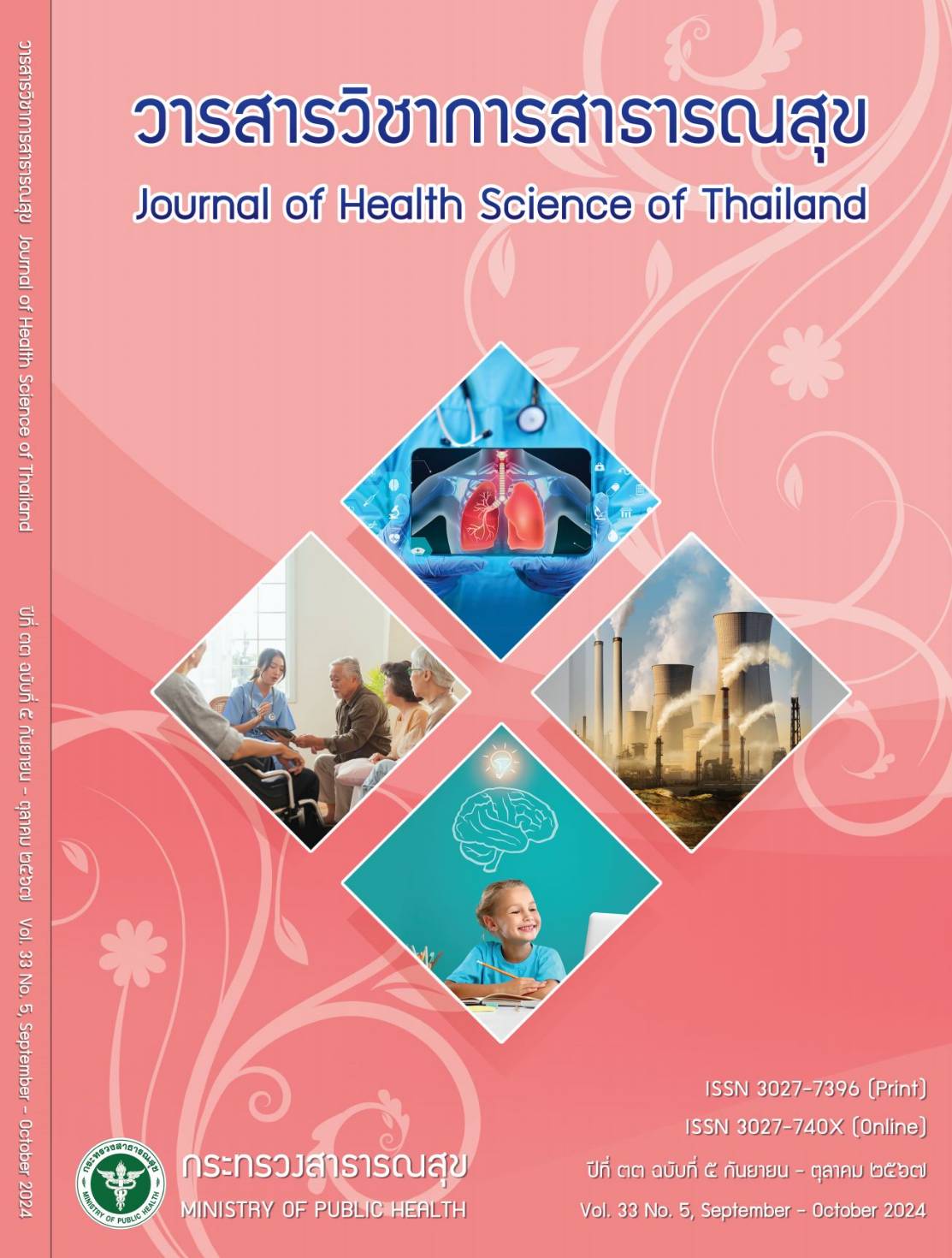Development Palliative Pharmaceutical Care in Maharaj Nakhonsrithammarat Hospital, Thailand
Keywords:
palliative care patients, palliative care drug system, opioid accessAbstract
This study aimed to develop a palliative care system at Maharaj Nakhon Si Thammarat Hospital,
enabling patients to access high-quality opioids analgesics while meeting the health service system criteria
(Service Plan) in the field of palliative care which was set at no less than 40 percent, It also aimed to
explore knowledge and understanding of drug use issues, patient behaviors, with a focus on addressing
protection of unwanted side effects of medication. The study was conducted as a action research
involving problem analysis in collaboration with the patient care team, tool development for system
improvement, and following the laid-out system. The study was divided into two periods. The first period, from
October 2018 to September 2020, focused on the system for delivering injectable opioids to
patients for home use. The results showed that patients access to opioid drugs increased from 5.84% to
20.25%, and 42.60% from the year 2018 to 2020, respectively. All patients could choose to return
to pass away at home as per their wishes by receiving injectable opioids pain relief drugs. The second
period, from January to September 2020, concentrated on pharmaceutical care by pharmacists at palliative
outpatient clinics. Data were collected from March to August 2020, involved 85 patients with 40 males
(47.06%), and 45 females (52.94%). The study involved a review of drug use history and medication
recommendations of 345 follow-up visits. The most common issue identified was adverse drug reactions,
accounting for 45.41% of all medication-related problems out of a total of 262 occurrences, with
constipation being the most prevalent (89.07%). The most common reason for non-compliance with
medication was the concern about side effects when patients learned that the medication contained opioids
(29.41%); and the most common problem regarding medication use was the irregular administering of
pain relief drugs (around the clock), with a rate of 27.9%. A system for tracking medication returns was
created, with a total value of 62,747.70 baht.
Downloads
Downloads
Published
How to Cite
Issue
Section
License

This work is licensed under a Creative Commons Attribution-NonCommercial-NoDerivatives 4.0 International License.







